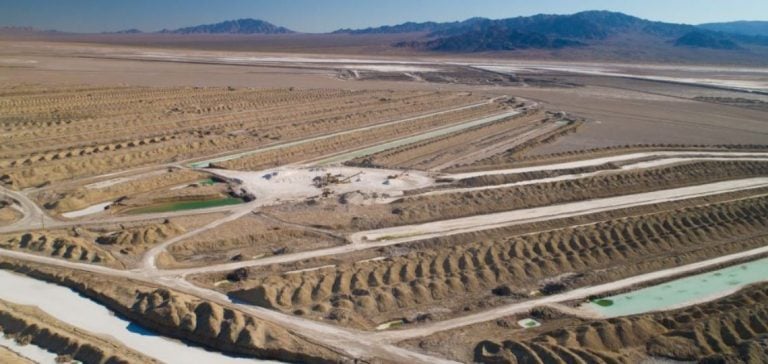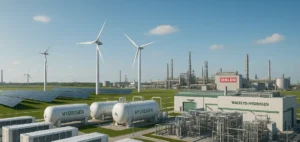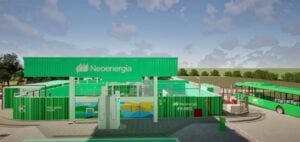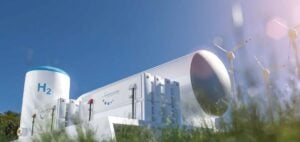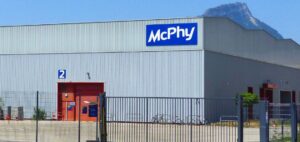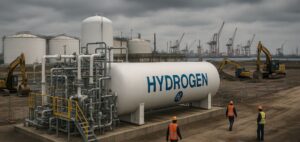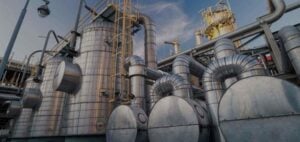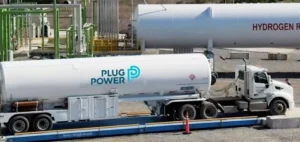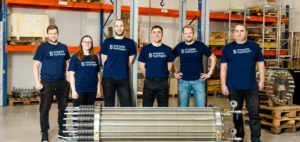The U.S. Department of Energy (DOE) awards a $225 million grant to support a lithium production project in southwest Arkansas.
The project, co-developed by Standard Lithium and Equinor, is part of a broader plan to secure the supply of critical minerals in the United States, essential for the production of batteries for electric vehicles and for energy storage.
This initiative falls within the scope of the Infrastructure Investment and Jobs Act, legislation that promotes industrial development related to batteries and the energy transition.
The funding will be used to build a Central Processing Facility as part of the South West Arkansas project.
The plant will use Direct Lithium Extraction (DLE) technology to extract 22,500 tonnes of battery-grade lithium carbonate per year.
Long-term domestic production
The South West Arkansas project will produce 45,000 tonnes of lithium per year in two phases.
The first phase, supported by the DOE grant, will focus on producing 22,500 tonnes annually, while the second phase will add identical capacity.
The aim is to meet the growing demand for lithium, a key element for energy technologies, while developing local industrial capacity to limit dependence on imports.
The feasibility studies currently underway, notably the Definitive Feasibility Study (DFS) and the Front-End Engineering Design (FEED), will enable us to refine the project design and optimize the use of resources.
These studies are essential to anticipate market needs and maximize production efficiency.
Regional and economic impact
The Southwest Arkansas Lithium Project is located in Lafayette and Columbia counties, an area with significant geological potential for lithium extraction from brines.
The planned plant will be built on 118 acres of land near Lewisville.
In addition to its industrial benefits, the project is an opportunity for the local economy: up to 300 jobs will be created during the construction phase, with around 100 permanent positions once the project is up and running.
Beyond jobs, the project will also boost local infrastructure and initiate partnerships with regional educational institutions to train a skilled workforce.
This approach aims to ensure long-term economic sustainability for local communities, which will benefit from direct investment in training and skills development.
Direct lithium extraction strategy
The technology used in this project, direct lithium extraction (DLE), is considered one of the most promising in the sector.
Unlike traditional methods, which require the evaporation of brines, DLE enables lithium to be extracted directly from underground brines, reducing production times and limiting environmental impact.
The development of this technology meets the specific needs of the battery market, which demands high-quality materials produced quickly and efficiently.
DLE also offers greater flexibility in terms of project location, making it possible to exploit geological resources that would otherwise be less accessible.
Outlook for US industry
The DOE’s support for this lithium project demonstrates the strategic importance of this resource for the US energy transition.
The US administration is seeking to increase its domestic production capacity for critical minerals to reduce its dependence on foreign suppliers, particularly in Asia.
This industrial policy aims to strengthen the resilience of supply chains, a central issue in the current context of high demand for electric vehicles and renewable energies.
Lithium production in Arkansas is therefore a key element of this strategy, helping to develop an integrated supply chain, from ore extraction to battery manufacturing.
This model is designed to encourage the establishment of new industrial capacity in the United States, thereby creating a more self-sufficient and internationally competitive industrial ecosystem.
The South West Arkansas project is therefore part of a broader dynamic that combines technological innovation, local development and national industrial strategy.
By optimizing the exploitation of local resources, it contributes to securing a long-term supply of lithium, while offering significant economic opportunities for the regions concerned.

